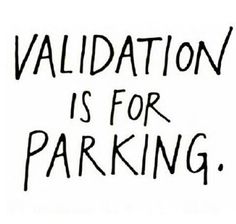Are you a toxic person?
I was.
Ooofff, it’s hard to admit that publicly.
The realization that I was the common problem in nearly every relationship and negative situation I found myself in was… rough.
But it was also incredibly freeing.
Finally admitting to my toxic mindset and behavior, meant that I was letting go of the shame, anger, and resentment I felt all of the time.
I felt more in control because I became proactive about confronting my problems, rather than waiting until they blew up into something that was a lot harder to fix – if it was fixable at all.
Letting go of toxic behavior and thinking also increased my energy because anger and resentment were constantly churning and looking for new ways to emerge.
One of the hardest conversations I have with many of my coaching clients is discussing their toxic behavior and how it impacts not only their own lives, but the lives of everyone in their orbit.
Like me, they come around to the idea that their toxic behavior is holding them back – not keeping them safe.
What Makes You Toxic?
A lot of us become toxic because we are angry. At some point in our life, we experienced something painful that had a profound effect on the way we see the world. We then become jaded and see things through a pessimistic lens.
Our toxicity shows up in the form of constant criticism, gaslighting, passive-aggressive behavior, and a need for power and control. We use this toxic behavior to cover up our anger, fear, disappointment, and resentment.
Except, that we’re hiding nothing because a toxic person is regularly displaying actions and behaviors that hurt others or negatively impact the lives of the people around them. We bring other down more than up.
Being a toxic person is exhausting to those around you because you are emotionally draining because you are constantly demanding attention, sympathy, or validation. Your constant complaining weighs heavily on others and leaves little room for positive interactions.
(Television and movies are a great place to find examples of toxic characters and behavior. Check out this list. Or this one.)
Getting Stuck in Your Own Toxicity is Stressful
Recognizing how you are poisoning your own life and relationships, and slamming the door on happiness, success, and joy is critical to your development as a human, as well as, managing your stress.
The negative thoughts, feelings, and behaviors of toxicity can perpetuate a stress cycle because negativity can send your body into stress or ‘fight-or-flight’ mode. When you live in a state of constant negativity and reactivity, your body is experiencing stress cycle after stress cycle.
Over time, you feel a lack of control over your life and often find yourself asking, “Why is this always happening to me?” This develops into a chronic pattern of not taking responsibility or accountability for your role in what happens in your life.
This constant pessimism doesn’t allow you make room for hope or faith. You don’t think that change or growth are possible for you.
You can’t lead a happy life if you refuse to look at how you are contributing to what’s happening to and around you.
I spend time with clients working to eradicate toxicity – and the stress it causes – so they can reclaim their power to make better choices, confront problems with effective solutions, and make room for happiness.
10 Common Signs (of Many) That You Are a Toxic Person
One of the first clues that you are toxic, is you actually ask, “Am I the problem?” when things continuously go wrong or there is constant conflict in your life.
There are many signs that you could be a toxic person and the problem. Here are 10 common signs and an idea about how to fix them:
- You use shaming language. The language you use can be construed as judgmental and/or create a power dynamic that causes others to pull back and not trust you. Saying this like, “You know what you should do…” or “You know better.”The Fix: Separate actions from personality characteristics and self-worth. Your choice of words can be the difference between someone learning from a mistake or using that mistake to spiral into more negative thinking.
- You deal with conflict in a roundabout way. Conflict is uncomfortable. You always find a way to avoid it. However, this turns into passive-aggressive behavior and comments, hostility, stubbornness, and subtle insults. This just amplifies the problem and turns into a larger issue.The Fix: Difficult conversations are scarier in our heads than in reality. The more you have these conversations, the easier they become. To start, ask yourself, “How can I say this in a way that is kind and useful?”
- You blame others for your problems. If nothing is ever your fault, or you have difficulty apologizing or taking responsibility, it’s time to stop and open your eyes. This mindset prevents you from learning from your mistakes and stepping into an empowered position to make positive changes in your life.The Fix: Start taking responsibility for your thoughts, feelings, and actions – as well as the consequences of the behavior they cause.
- Everything is competition. Telling someone about a similar experience to theirs is different than trying to show how you’ve had it worse. The first is where you show you resonate with their pain and use empathy to connect. The second is competition. Trying to convince them that their situation isn’t so bad, only invalidates their feelings.The Fix: Figure out why you feel the need to compete. Is it because this I the only way you’ll feel validated about your own experience. If you find it hard to show compassion for someone else, ask yourself, “What would I want someone to say to me in my position?”
- You turn everything into a joke. Even the most serious and saddest stuff. Maybe it’s because you don’t know how to deal with situation or your own emotions. So, you try to escape via lightheartedness.The Fix: You don’t need to know exactly what to say in every situation or have the answer to everything in the moment. It’s okay to say, “I feel a little uncomfortable and uncertain because I’m not used to this.”
- You want to fix everyone and everything. Other people aren’t our projects. Just because you can solve a problem, doesn’t mean you should. The responsibility is in the hands of the issue-holder – who may not even see it as a problem.The Fix: Sometimes people aren’t asking for solutions or even for a listening ear, but we unintentionally create trauma from nonexistent wounds by probing. Instead ask, “Do you want to talk about it?” And, if the person did not ask for advice, say, “I have a suggestion. Would you like to hear it?”
Also, learn to accept people’s flaws, help them when asked, and if necessary, withdraw from the relationships where the person’s behaviors are seriously affecting you in a negative way.
- You secretly crave disaster because of the care you receive from it. Do you enjoy the attention from drama or the pity parties you throw? A sign that you love the attention from pity parties is that you ask for solutions – only to shoot all of them down. It’s your way of opening up conversation, bathing in their attention and care, and convince yourself that you’re seeking help. This behavior puts a lot of strain on friends who need to keep picking up after us.The Fix: If your life is a consistently deteriorating train wreck, where the majority of your interactions with others are centered around your desire for attention, it’s time to get your life together. Commit to stop managing the problem and its symptoms, and instead, start solving your situation. Think about a time when things were good, when you were in control of your emotions, and when you liked who you were. Tap into how that feels, and use that energy for momentum and strategy toward finding that person again.
- You think pointing out someone’s flaws will help them change. Your bring attention to embarrassing flaws or problems thinking this will whip the other person into action.The Fix: Instead say something like, “I’ve noticed this change in you, and I’m here for you if you ever want to talk.” And, if they want your help or support, they’ll ask for it.
- You complain a lot. You tend to focus on the negative and complain excessively. Do you only see the worst in others and situations? Is “yeah, but…” a common response from you?The Fix: Everything you think or feel doesn’t need to be shared. Start writing in a journal and looking for effective solutions to your problems, rather than depending on others to relieve your pain and solve them for you.
- You use guilt to manipulate others. You use another person’s emotions and feelings of guilt to get them to do something you want, and they likely don’t. You do this by bringing up past mistakes and disappointments, remind them of favors you have done for them in the past, refusing to speak or giving the silent treatment, or using passive-aggressive behavior and language. Using guilt trips only poisons relationships because it leads to lasting feelings of resentment.The Fix: Did you know that laying a guilt trip is a stealth way of venting buried anger? You have learned to bury your anger after learning at some point in your life that your negative feelings scare or offend others. You are masking your more vulnerable emotions like fear and sadness. Instead, learn to be direct in your communication and share your feelings. Then, accept when someone may not be able to help or doesn’t want to. Your feelings are your responsibility.






